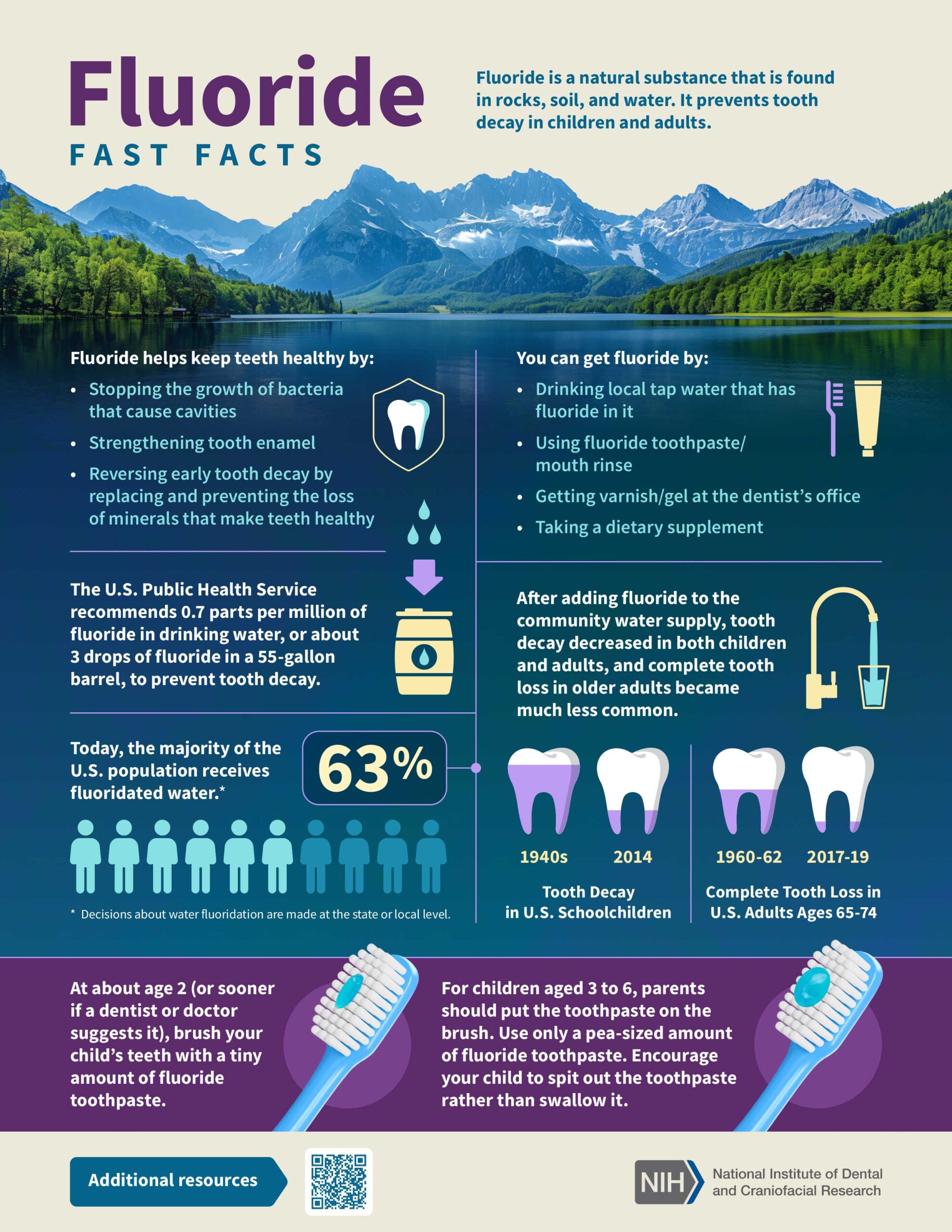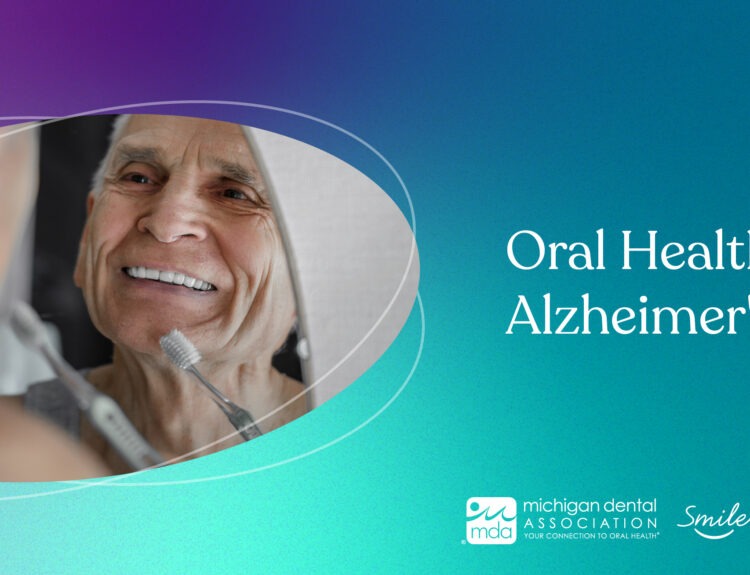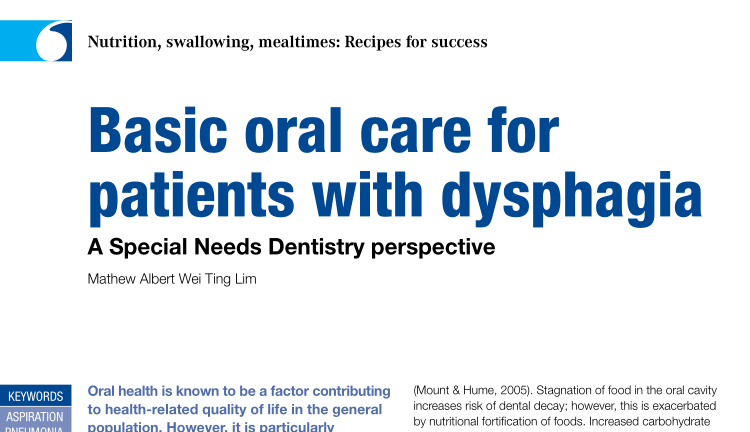Researchers have well-documented the role of Fluoride in preventing tooth decay, particularly through community water fluoridation. Ongoing research continues to explore potential health risks, mainly linking them to excessive exposure from natural or industrial sources rather than controlled fluoridation. Maintaining its optimal levels (0.7–1.2 mg/L) is beneficial for dental health, while higher concentrations may lead to adverse effects. Fluoride is also present in toothpaste and safe if used as directed. It requires a pea-sized amount for adults, a rice-grain amount for children, and spitting out after brushin. However, excessive exposure to fluoride can cause potential health risks.
Dental Fluorosis: Excessive fluoride intake during tooth development (childhood) can cause dental fluorosis. It is characterized by white spots, streaks, or, in severe cases, brown discoloration and pitting of the enamel. Mild fluorosis is common in areas with fluoridated water but is generally acceptable as cosmetic feature rather than harmful.
Skeletal Fluorosis: Chronic exposure to very high levels of fluoride (from natural sources) can lead to skeletal fluorosis, a condition involving bone and joint pain, stiffness, and, in severe cases, skeletal deformities. This is rare in regions with controlled water fluoridation.
Neurotoxicity: Some studies, particularly from areas with high natural fluoride levels, suggest a possible link between high fluoride exposure and lower IQ scores in children. However, these studies often have limitations, such as confounding factors (e.g., exposure to other toxins) and variability in fluoride levels. More rigorous research is needed to establish a definitive causal relationship.
Thyroid Function: Some studies suggest that excessive fluoride exposure may interfere with thyroid function, particularly in individuals with iodine deficiency. However, there is no strong evidence to confirm a direct link.
Bone Health: Its low levels improve bone density. But excessive exposure causes an increased risk of bone fractures and skeletal fluorosis. The evidence is more pronounced in areas with very high natural fluoride levels.
Cancer: Early studies raised concerns about a potential link between fluoride and osteosarcoma (a rare bone cancer), but subsequent research, including large-scale reviews by organizations like the National Cancer Institute (NCI) and the World Health Organization (WHO), has found no consistent evidence to support this claim.
Reproductive and Developmental Effects: A few animal studies have suggested that very high fluoride exposure may affect reproductive health and fetal development, but human studies are lacking, and the relevance of these findings to typical human exposure levels is unclear.
Kidney Function: Individuals with impaired kidney function may be more susceptible to fluoride accumulation, as the kidneys are responsible for excreting fluoride. However, there is no strong evidence that at recommended levels, it harms kidney function in healthy individuals.
Gastrointestinal Issues – Swallowing its large amounts from toothpaste over time may cause nausea, abdominal pain, and other digestive disturbances.
Many Public health organizations continue to support its use . They include WHO, Centers for Disease Control and Prevention (CDC), World Dental Federation (FDI) and many dental associations
Read our full disclaimer.




